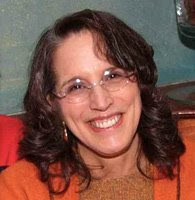My father always told me that as he left the hospital after I was born, the newspaper headlines were that Franklin Roosevelt had died. He said his greatest fear was that I might be the reincarnation of Roosevelt.
So I spent much of my young life thinking that I was born on the day that Roosevelt died. I did even consider that Roosevelt might have died in the night while I was born the next morning.
At any rate, it is probably remarkable that my father, not just a scientist, but a physicist, spoke to me this way about reincarnation. It gave me a basis for considering reincarnation seriously, which I did at various times in my life, which is a topic for another day.
At some point, perhaps as a teen or in my early 20's, I decided to look up the death of Franklin Roosevelt. You can imagine my surprise to find that he did not die the day before or on my birthday. He died the day after I was born! Apparently, my father was in the hospital so long that the time merged into one day.
Showing posts with label Roosevelt. Show all posts
Showing posts with label Roosevelt. Show all posts
Wednesday, October 31, 2007
Thursday, October 25, 2007
An example of how a child uses a library for problem solving
My parents often spoke of Franklin Roosevelt as the worst thing that happened to this country. As a child, I wondered who he was and what was so bad about him. Sometime about the fifth grade (1955), I looked for a biography on Roosevelt so I could answer my questions. My school library had a whole series of biographies that had orange bindings. Sure enough there was one on Franklin. The book did tell me about who Franklin was and about his life. It did not really tell me, nor was I probably ready to comprehend, what my parents thought was so bad about him.
The point here is that libraries provide a child with a place to find some answers to his or her questions. Many times a child's questions are not ones that have been fully articulated. Bruno Bettelheim has certainly shown this in his work with fairy tales in the book, The Uses of Enchantment: The Meaning and Importance of Fairy Tales.
Bettelheim relates in the book how different children use the same fairy tale to resolve problems at different ages. In the case of Hansel and Gretel, one might think that the story is most useful for children dealing with fears about their parents diserting them, but Bettelheim tells how a young girl used the story to work out her own autonomy separate from her brother. Battelheim relates how Gretel had to take action to save her brother, who was in a cage, from being cooked and eaten by the witch. The girl did not really know what was bothering her, but apparently, she had been dependent on her own brother and it was time for her to assert herself. The Hansel and Gretel story gave her a model of Gretel acting independently so the girl was able to use this model in her own life.
Reading Bettelheim gave me a new insight into children and helps me to listen to them differently. The difference is being open to what a child may not be able to articulate, but what is a question for him or her. It is important to step back from our own thinking to allow the child to explore in a seemingly disordered way that may lead to his or her hitting on just the issue that is not at the level of awareness that would allow articulation.
The point here is that libraries provide a child with a place to find some answers to his or her questions. Many times a child's questions are not ones that have been fully articulated. Bruno Bettelheim has certainly shown this in his work with fairy tales in the book, The Uses of Enchantment: The Meaning and Importance of Fairy Tales.
Bettelheim relates in the book how different children use the same fairy tale to resolve problems at different ages. In the case of Hansel and Gretel, one might think that the story is most useful for children dealing with fears about their parents diserting them, but Bettelheim tells how a young girl used the story to work out her own autonomy separate from her brother. Battelheim relates how Gretel had to take action to save her brother, who was in a cage, from being cooked and eaten by the witch. The girl did not really know what was bothering her, but apparently, she had been dependent on her own brother and it was time for her to assert herself. The Hansel and Gretel story gave her a model of Gretel acting independently so the girl was able to use this model in her own life.
Reading Bettelheim gave me a new insight into children and helps me to listen to them differently. The difference is being open to what a child may not be able to articulate, but what is a question for him or her. It is important to step back from our own thinking to allow the child to explore in a seemingly disordered way that may lead to his or her hitting on just the issue that is not at the level of awareness that would allow articulation.
Labels:
Biography,
Children,
Fairy Tales,
Questions,
Roosevelt
Subscribe to:
Posts (Atom)
